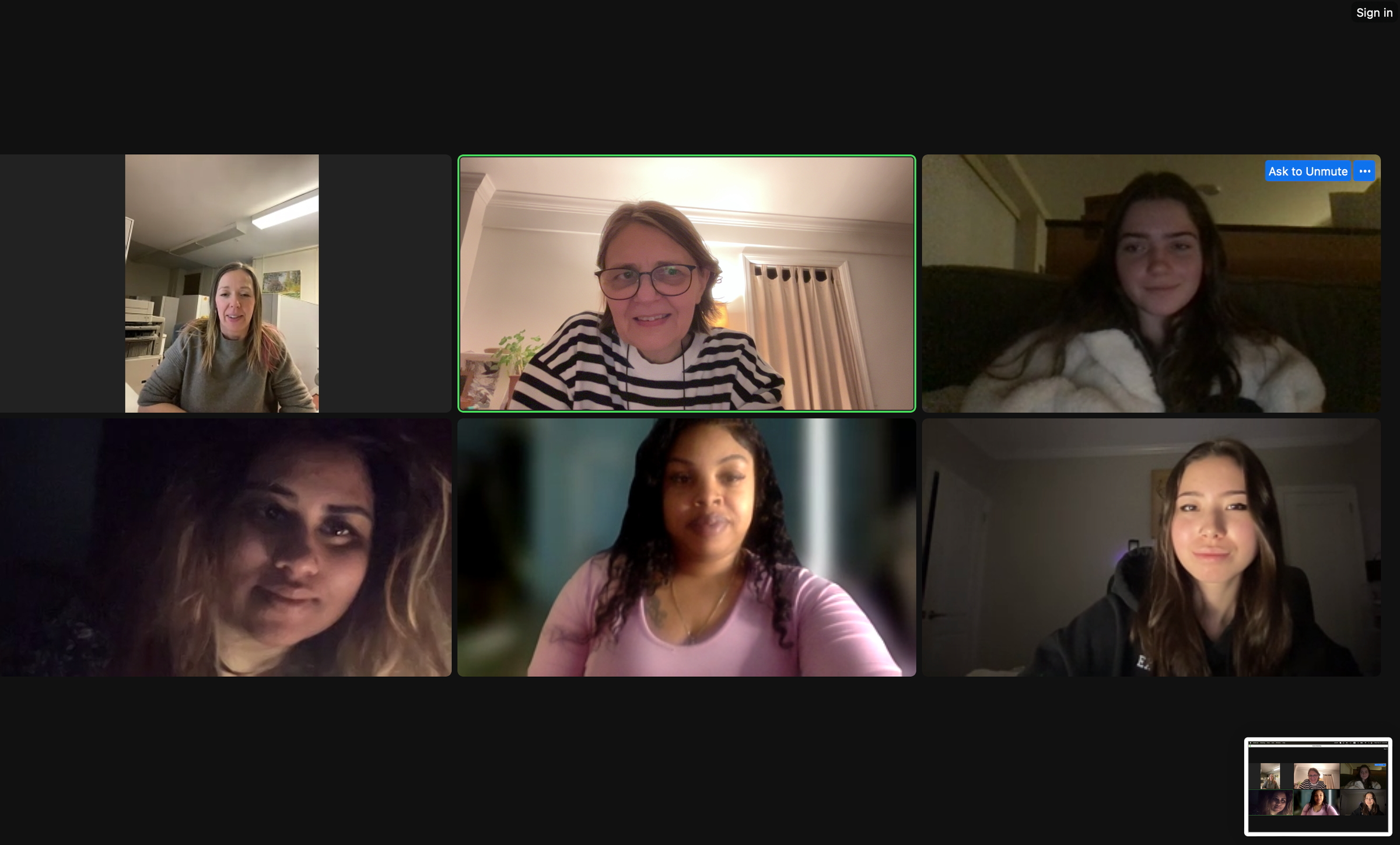by Lara Beaty, Dušana Podlucká, and Eduardo Vianna
The Psychology Program is participating in the Title V Project Conexión Innovation grant from the US Department of Education starting in 2024. The purpose of this initiative is to engage students in the psychology major in a collaborative research project wherein they are introduced to fundamentals of psychological research, build key academic and professional knowledge and skills, and connect with psychology graduate students and faculty/researchers to facilitate transfer and career explorations. Participating students are working on a semester-long collaborative research project, which involves basic qualitative and/or quantitative data collection and analysis under faculty supervision. Students started to work with one of the three psychology faculty members, Drs. Lara Beaty, Dušana Podlucká or Eduardo Vianna, in Fall 2 and will continue attending weekly two-hour sessions throughout the Spring 2024 semester. Twenty-one students have gotten involved. The students who complete the project will present their research at Psychology Research Conference in May and will also upload their work to their ePortfolio. Upon completion of different phases of the project, student researchers will each earn 3 gift cards: two for $50 and one for $100.

Zoom meeting of the members of Disability Research Group in Fall 2, clockwise from top left to right: Sarah Chester (LaGuardia alumni, Hunter College), Dr. Dušana Podlucká, Anna Teklits (CRSP fellow), Kristina Beca, Shaquya Hammond and Tuhin Akhanda (The Conexión Innovation Grant fellows).
Each of the faculty mentors the small group of students and focus on different issues within their research groups:
The Student Experience Research Group (SERG) was started in 2011 by Dr. Lara Beaty to involve students in undergraduate research. The purpose is to investigate college retention and student development. SERG students have worked collectively to design and carry out research on topics that emerged in discussion and from the literature. The Project Conexión Innovation grant supports students for a semester as new students engage in research. SERG students work together to develop the skills and ways of thinking needed to conduct research. Alumni often continue and bring back what they have learned from more advanced courses after transferring. LaGuardia students engage with Dr. Beaty and alumni to explore each others’ sense of the college experience as it relates to the data. In 2019, SERG turned to explore adverse childhood experiences, and as the COVID-19 pandemic began, the relationship between this collective trauma, prior traumas, and the college experience came into focus. Three surveys have thus far been used, and a fourth survey will be used in 2024 to address adverse childhood experiences as they are typically studied, the broader sense of childhood adversity that SERG has previously embraced, specific experiences of and reactions to the pandemic, college experiences, and measures of coping. A key part of SERG is sharing experiences and supporting one another in the different stages of college education.
Though quantitative reasoning (QR), the contextualized use of numbers and data involving critical thinking, is widely recognized as essential for college graduates, many students end their formal schooling without acquiring the requisite QR skills. As a step toward redressing this issue, Dr. Eduardo Vianna, Co-Principal Investigator of NSF-funded Data Analysis Research Experience (DARE), a project designed to improve quantitative reasoning in thirty-six courses across CUNY, will implement this spring a version of this collaborative research project with LaGuardia students through the Conexión Innovation Grant. Aimed at fostering QR Development Through Engaged Data Analysis Projects, a cohort of ten students will engage in a collaborative learning project wherein they are introduced to fundamentals of scientific research, build key knowledge and skills, and connect with psychology graduate students and faculty/researchers to facilitate transfer and career explorations. Students are conducting research on a psychologically related topic of their choice, which involves basic quantitative data collection and analysis. They are attending weekly sessions where they receive the training and supervision to carry out their research project. The expected result is that students will significantly improve their writing skills and develop basic quantitative reasoning skills (e.g., interpreting cross-tabs, percentages, using spreadsheets) and gaining experience with the fundamentals of psychological research.
Dr. Dušana Podlucká mentors Disability Research Group, which focuses on studying human development and dis/ability from a socio-cultural perspective. Since its foundation in 2017, the group members have collaboratively developed a research agenda to understand and critically explore disability and psychological processes as socially, culturally, historically, and spatially produced. In the past, student researchers engaged in exploring topics such as the socio-cultural view of autism, the spatial production of disability, ableism, learning and development of deaf and blind children, critique of learning styles, and socio-cultural perspective to learning differences. Three students participating in the Conexión Innovation Grant (Kristina Beca, Tuhin Akhanda, and Shaquya Hammond), and two other members of the Disability Research Group (Anna Teklits, who is a CRSP fellow, and Sarah Chester, LaGuardia alumni, currently a student at Hunter College) under Dr. Podlucká mentorship, are collaboratively designing a survey about people’s attitudes toward disability and mental health. Each student researcher focuses on a specific issue corresponding with their particular interest. Those include gender, racial, and age differences in people’s attitudes towards seeking support for mental health issues, or gender, education, parenthood, and socioeconomic status differences in attitudes towards learning disabilities and ADHD. Similarly, as students participating in the research groups lead by Drs. Beauty and Vianna, student members of the Disability Research Group are gaining valuable research skills, including understanding research process, quantitative reasoning, critical thinking, communication and presentation skills.
You will be able to meet students researchers and faculty mentors from all three research groups and learn more about their research projects in May at the Psychology Research Conference.